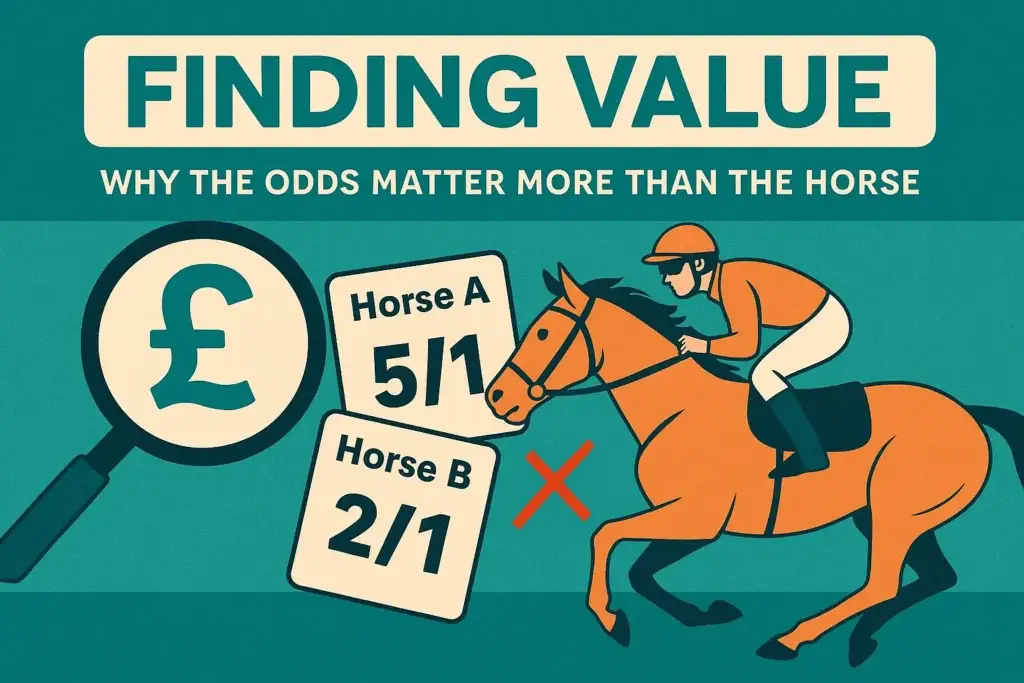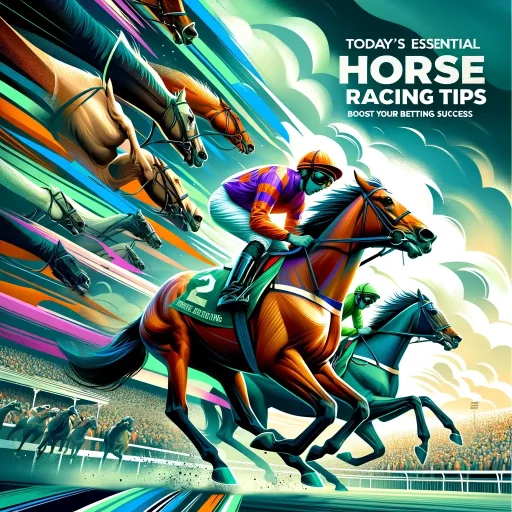
10 Quick Lessons All Punters Need To Learn
The Ultimate Betting Guide for Horse Racing Fans
Paul Gargan | 3rd May 2025
Follow these 10 simple rules to become a better punter.
Introduction
If you like betting on horses you already know how easy it is to lose.
Lack of discipline, dodgy tips flying around, bad luck, bad judgment, and bookies always pinching their pound of flesh out of the odds. It all adds up.
This horse racing betting guide helps you manage these negative factors and become a better punter.
Winning is 10% skill and 90% strategy – and anyone can learn the strategies.
This guide is written for ordinary people. Simple language and explanations, designed to make it easy to understand.
And just by reading this guide, you’ve made the first step towards improving.
This horse racing guide and the betting strategies described will give you a much better chance of becoming a successful punter.
At PGR, we’ve been helping everyday racing punters like you for over 20 years.
And these ten lessons – short, sharp and based on experience – will help you start thinking smarter, betting sharper and make you far harder for the bookies to beat.
You aren’t going to get rich overnight. We don’t do miracles. But you’ll stop making many of the mistakes that losing punters make again and again.
So, let’s get you started.
1. Set a Proper Betting Bank
Most punters just bet with whatever’s in their wallet or bank account. That’s not a strategy, it’s dangerous. You’re mixing the cost of a hobby (betting) with your life expenses, without any kind of limit or separation.
Trust me. This never, EVER ends well.
If you’re serious about becoming a better punter, you need a dedicated betting bank. This is a set amount of money, completely aside from living costs or savings. This is money you can afford to lose without messing up your life or affecting anything else.
How to decide on a betting bank? Everyone’s financial position is different. But as a rule of thumb, I tell my clients that your initial betting bank should be no more than a week’s take-home income.
Betting Bank Examples:
Take home 2k a month – Maximum betting bank is around £500
Pension pays you £800 a month – Maximum bank is around £200
If you lose some of your betting bank, and decide to top it up at the end of the month with some disposable income, that’s fine. Provided it’s planned and controlled.
But once you have an initial bank, you should never bet from long-term savings or affect your living costs.
2. Set a Consistent Staking Plan
Now we move on to staking.
Controlling your stakes and using a consistent method is vitally important.
And once your betting bank is in place, you need to set your stakes.
Typically, a healthy stake is between 1-3% of your total bank on any single bet.
Example: If your bank is £500, your usual stake should be between £5-15. A fun bet (mentioned earlier) might only be £2, and should certainly be no more than £5.
What To Avoid
You MUST NOT suddenly have £40 on a horse because you “fancy it”, or because you are chasing losses
A betting bank keeps you accountable. It gives you structure. It helps you think clearly and stay in control.
And if the betting bank has dropped, what does it show you?
It shows you that you have not been getting things right, so pressing up your stakes is the LAST THING you want to be doing.
Staying in control of your stakes, even if you’re winning or losing big, is essential.
Without this kind of betting strategy, you’re just throwing money around and hoping for the best.
3. Only Have A Proper Bet When You’ve Got a Good Reason
Most punters bet too often. And a lot of the time they are betting on bad quality racing that they don’t have any real interest or opinions on.
Most people need to:
- Be a little more patient, or
- Be super strict with your staking.
Betting is fun. It’s a hobby, entertainment, whatever. You want to bet, so I’m not telling you to sit out for days on end.
There are good bets every day. We tip horses every day and show a profit every year. So it is clearly possible.
But if you’re picking bets out just to have an interest in every race, you have to be super careful.
A good bet should have a solid reason behind it. At least one proper angle can be enough to justify a bet. And if that solid angle isn’t there, you need to learn to have ‘fun bets’ instead.
Fun bets are very small stakes that you don’t care about if you lose. It needs to be that small. If the bet loses, the loss should not influence your mood or your next bet.
£5 or less is a common fun bet. £2 is enough for small punters. £10 is too much unless your betting bank is £1k plus.

4. Finding Value - Why The Odds Matter More Than The Horse
This is the single biggest difference between punters who lose and punters who last: they understand value.
One of the most stupid sayings I’ve ever heard in relation to betting is ‘you can’t eat value’.
This is a phrase used by ignorant punters who often bet on heavily-backed horses, long after the value has gone. Their reasoning? “It should win anyway and a winner is a winner”.
If you subscribe to this point of view, drop it. Right now.
I’d like to ask these fools whether that 6/4 chance would still be a good bet if it was 1/10 instead?
After all, they are talking like it will definitely win, and a profit is a profit. Right?
Wrong. What a load of rubbish. Take away that 6/4 and offer them 1/10 and they would not have a single penny on.
And it’s not even because the bet is not ‘value’ any more.
It’s simply because the odds on offer (6/4) fall within an acceptable range of odds for them. They’re happy to lump on a 6/4 chance that they think should win. There’s no real analysis.
It’s based on a lazy, broad-view betting approach. And greed.
These people have no direct concept of value. Yet they consider themselves serious gamblers. And this is a root cause of problems for so many people.
Value is Everything – Here’s Why
In betting, it’s not just about picking winners; it’s about finding value.
Value is present when the odds offered by the bookmaker are higher than the actual probability of the event happening.
Understanding these Terms:
- Actual Probability: The true chance of an outcome occurring. Hard to nail down, even after the race is run (as each race pans out differently).
- Implied Probability: The probability suggested by the bookmaker’s odds. This is a fixed number.
A note on Estimating Actual Probability:
Since we can’t know the true chance of a horse winning, we have to make our best estimate. This involves analysing factors like the horse’s past performance, track conditions, jockey statistics, and other relevant data. We’ll delve deeper into methods for estimating these probabilities later in this guide.
Finding bets where the actual probability is higher than the implied probability is the key to winning. This is literally what value is, when we talk about it in a betting context.
The gap between these two numbers is something I call Expected Value (EV).
Calculating Expected Value (EV):
EV = (Total Stakes × Actual Probability) − (Total Stakes × Implied Probability)
Example 1: A Value Bet
Imagine you believe a horse has a 50% chance of winning a race. The bookmaker offers odds of 2/1 (3.0 decimal, implied probability of 33.3%).
- Actual Probability: 50% (0.50)
- Implied Probability: 33.3% (0.333)
- Stake: £100
EV = (£100 × 0.50) − (£100 × 0.333) = £50 − £33.30 = £16.70
This means, on average, you’d expect to make £16.70 profit per £100 bet over the long term. This is a healthy edge and represents a good value betting opportunity.
Example 2: A Poor Value Bet
Now, suppose you believe a horse has a 30% chance of winning, but the bookmaker offers odds of 2.5 (implied probability of 40%).
- Actual Probability: 30% (0.30)
- Implied Probability: 40% (0.40)
- Stake: £100
EV = (£100 × 0.30) − (£100 × 0.40) = £30 − £40 = -£10
Here, you’d expect to lose £10 per £100 bet over time.
And here’s the kicker: Bookies price up every race, to include their margins, with the fundamental hope that as many of the horses have a negative EV as possible.
This means they are guaranteed to win over a period of time.
By focusing on bets where you believe a positive Expected Value exists, you give yourself the very best chance of success.
Chase value. Not winners. When value is consistently present, profit will occur. That is a mathematical fact.
5. A Horse Winning Doesn’t Justify A Bad Bet
This is something that relates closely to the previous point.
Just because a bet wins, does not mean it was a good bet.
Sure, winning is better than losing. And lots of good bets do win. But lots of bad bets win as well.
Let’s go back to the metaphorical 6/4 chance that is now 1/10. Taking the 1/10 is very unlikely to be a good bet. But it may well still win.
That does not make it a good bet. And if it wins and you get paid, it means you were lucky. As if you had that bet 100 times you would lose your trousers.
Once you can process and accept that some bets and some winners are bad value, it makes it easy to sit those races out.
Not to mention, if a favourite is short-priced and offers bad value, the nature of a balanced betting market means there is very likely to be value elsewhere in the race.
Now let’s move onto how to establish value for a bet.

6. Stop Chasing Losses
Every punter has experienced a losing streak. It’s part and parcel of betting. But the real danger lies not in the losses themselves, but in how we react to them.
Chasing losses—placing bigger or more frequent bets in an attempt to recover previous losses—is a surefire way to deepen the hole. It’s a reaction driven by emotion, not logic. The desire to “get even” clouds judgment, leading to impulsive decisions and further losses.
Bookmakers are well aware of this behaviour. They know that after a series of losses, punters are more likely to make irrational bets, often on unfavourable odds. This is where they capitalise, turning your desperation into their profit.
Remember, placing a bet should be a calculated and deliberate action, not an emotional response. Accepting losses as part of the game and maintaining discipline is crucial.
By doing so, you will preserve your betting and keep your betting strategy intact.
Why Do Punters Chase Losses?
Several factors contribute to this behaviour:
- Emotional Response: After a loss, the immediate reaction is often frustration or anger, leading to impulsive decisions.
- Illusion of Control: Believing that you can predict or influence outcomes, especially after a losing streak, can lead to increased betting.
- Gambler’s Fallacy: Assuming that a win is “due” after a series of losses, despite each event being independent.
The Consequences
Chasing losses can have severe repercussions:
- Financial Strain: Increasing bets to recover losses can quickly deplete your bankroll.
- Emotional Distress: The stress of mounting losses can lead to anxiety and depression.
- Impaired Judgment: Emotional betting often overrides logical decision-making, leading to poor choices.
Benefits of Avoiding Chasing
Steering clear of chasing your losses isn’t just about avoiding damage—it also creates positive benefits that directly improve your betting results and overall enjoyment:
- Clearer Decisions:
Staying disciplined helps you make better-informed bets, improving your long-term profitability by choosing value rather than emotion. - Healthier Bankroll:
Avoiding impulse bets keeps your betting bank intact, giving you the funds and freedom to capitalise when genuine opportunities appear. - Reduced Stress:
Betting calmly and logically means less stress and anxiety. You’ll enjoy your betting experience more when you’re in control rather than panicking. - Improved Confidence:
Maintaining your discipline boosts your confidence. Each well-considered bet you place reinforces good habits, helping you trust your judgment even more. - Longer Betting Life:
By betting responsibly and refusing to chase losses, you’ll stay in the game longer—giving yourself time for smart bets to pay off, rather than blowing your bank in one emotional session.
7. One Good Bet Is Better Than Five Average Ones
There’s a common trap many punters fall into: thinking that more bets mean more chances to win. But in reality, it’s not about how many bets you place; it’s about the quality of those bets. One well-researched, high-quality bet can be far more profitable than several average ones.
Imagine a typical Saturday with a full race card. The temptation is to have a bet on every race, but this approach often leads to rushed decisions and reliance on gut feelings rather than solid analysis. Instead, focusing on a few select races where you’ve identified genuine value can lead to better outcomes.
Remember what I said about fun bets. If you are bored and want an interest, just have that 1% fun bet. You’ll still get a little buzz if it wins. But if it doesn’t, which is what you expect, then you won’t be overly disappointed.
Getting used to most of your bets being fun bets is something all punters should learn.
Let’s take a look at a snapshot of a healthy betting approach on a busy day of racing.
Example of a Balanced Betting Day:
- Race 1: No bet – the field is too unpredictable and a bet would be a pure guess. Happy to sit the race out and spend the time looking into later opportunities.
- Race 2: Fun bet – no strong opinions but decided to have a fun each-way bet on a long shot you feel is overpriced.
- Race 3: Fun bet – again, nothing stands out. But the favourite looks to have a strong chance and isn’t bad value for your small punt at 3/1.
- Race 4: Strong bet – You’ve looked into this race in detail, where you’ve identified a horse with strong form pointers and the odds are as good as you could have hoped. Your best bet of the day.
- Race 5: No bet – had a good look but just can’t see anything that stands out.
- Race 6: Another ‘fun bet’ on a favourite, just for an interest as it seems the most likely winner but doesn’t excite you enough for a proper interest.
In this scenario, you’ve only placed one serious bet, based on solid analysis and a firm opinion.
The other races you’ve either sat out, or placed a fun bet for a little enjoyment. This approach keeps your bankroll intact and reduces the emotional rollercoaster of constant heavy betting.
By being selective and focusing on quality over quantity, you not only improve your chances of making a profit but also enhance your overall betting experience. Remember, it’s not about betting on every race; it’s about betting smart.
8. If You Get Emotional, You're In Trouble
Betting when your emotions are running high is a recipe for disaster. Whether it’s after a heated argument, a few drinks, or a string of losses, your judgment is compromised.
And in my experience, nobody ever wins when they find themselves in this situation.
Emotional states like anger, frustration, or overconfidence can cloud your decision-making, leading to impulsive bets that don’t follow your usual strategy.
Research indicates that emotional arousal can impair cognitive functions, making it harder to assess risks accurately and stick to a betting plan.
For instance, studies have shown that individuals experiencing strong emotions tend to make riskier decisions, often ignoring statistical probabilities in favor of gut feelings.
Here is something most tipsters won’t tell you. And would never admit about themselves.
Emotional betting affects nearly half of us who love a punt—especially when we back horses regularly. A lack of emotional regulation is incredibly common in gamblers, which is why you often see people have crazy reactions when they lose.
And here’s the thing; I know this is true firsthand, because I’ve battled it myself.
When things aren’t going well, frustration, anxiety, or impatience can drive you into bad bets. It took years of betting before I really understood this about myself, then years of discipline and training, to stop emotions affecting my betting decisions.
The simple fact is that if I had never got through this, I wouldn’t be here telling you this today. I’d never have become a successful gambler and tipster.
The good news? Once you see and acknowledge emotional betting for what it is—a completely normal, fixable issue—you’ve already taken a big step forward.
By becoming aware of your own emotional triggers, you can massively improve your betting decisions and, ultimately, your profits.
Sometimes, the triggers can be external.
Imagine this scenario: you’ve had a few pints, feeling invincible, and decide to place a large bet on a horse without proper analysis. The horse loses. You have a few more drinks and forget about the loss for now.
But the next day, you realise the bet was based more on bravado than logic, and your betting bank has taken a big hit. Such decisions, driven by temporary emotional states, can have lasting consequences.
To maintain discipline, it’s crucial to recognise when your emotions or outside influences might alter your betting choices. If you’re feeling off-kilter for whatever reason, take a step back. You don’t need to bet. Nobody cares if you don’t. Pause, reflect, and only return to betting when you’re in a clear, rational state of mind.
Remember, successful betting isn’t just about knowledge and strategy; it’s also about emotional control. And understanding yourself and the things that trigger you into making bad decisions, and addressing those reactions, is vitally important for your development as a gambler.
9. Keep Track Of What You’re Doing and Learn From The Numbers
Always record your bets—every single one. Jot down wins, losses, and stakes. Doing this makes you face reality head-on, stops you fooling yourself, and reveals exactly where you’re leaking cash—and importantly, where you’re winning.
Just picture this: Tomorrow you discover you’re making five times more profit betting on Flat racing compared to Jumps. What would you do? You’d naturally shift most of your betting bank toward Flat horses and ease off Jumps, reserving it for a bit of fun rather than serious money-making.
Betting is a skill. And like any skill, there’ll be areas you excel at, and others where you struggle. The smart punter doubles down on their strengths and either avoids weaker areas or invests the time and analysis needed to improve significantly.
Use your betting records as a mirror—they’ll reflect the true state of your punting skills, guiding you towards smarter, more profitable decisions.
10. Forget Today; Long-Term Profit Is The Only Thing That Matters
It’s easy to get caught up in the excitement—or frustration—of today’s results. But successful betting isn’t measured by one day’s outcomes, or even a week’s. It’s about the bigger picture.
Professional punters understand this completely. They don’t chase immediate highs or panic after a tough day. Instead, they stick to a proven strategy, trusting that solid, consistent decisions will yield steady profits over time.
You need patience, discipline, and resilience to stay in the game long enough for your smart bets to truly pay off. Focus on long-term results rather than short-term swings. When you do, you’ll start betting with greater confidence, clarity, and control—and ultimately, your bank balance will thank you for it.
Betting smart isn’t flashy, but it works. Commit to making decisions based on analysis, stats, and discipline rather than impulse and emotion. The real reward comes from staying the course and letting your good decisions compound over months and years.
Stick to these principles, and you’ll already be ahead of 90% of punters. They’re simple, but not easy. If you can follow them, you’ll lose slower, win better, and think sharper every time you bet.
Good luck and smart betting!
Paul



